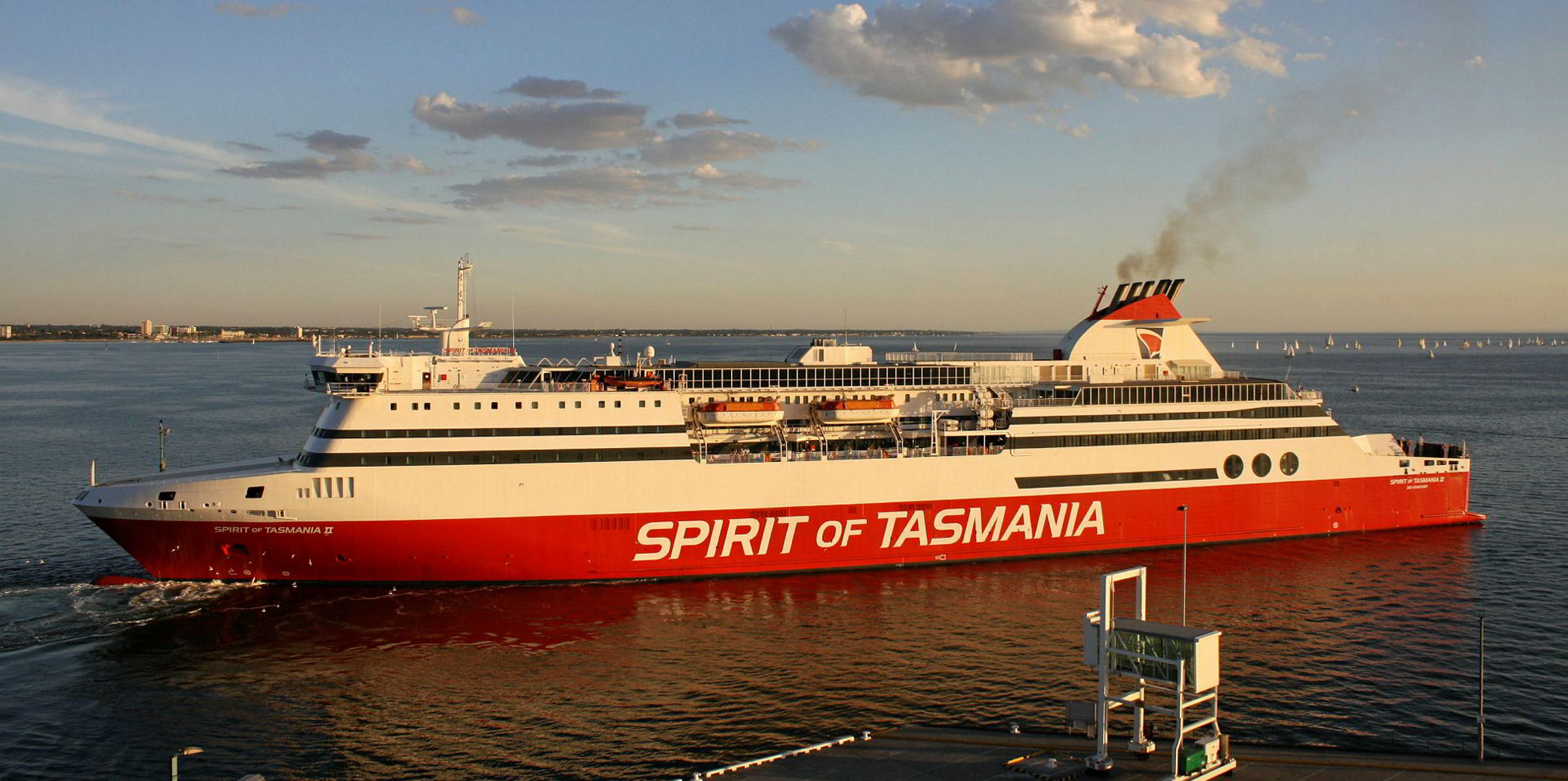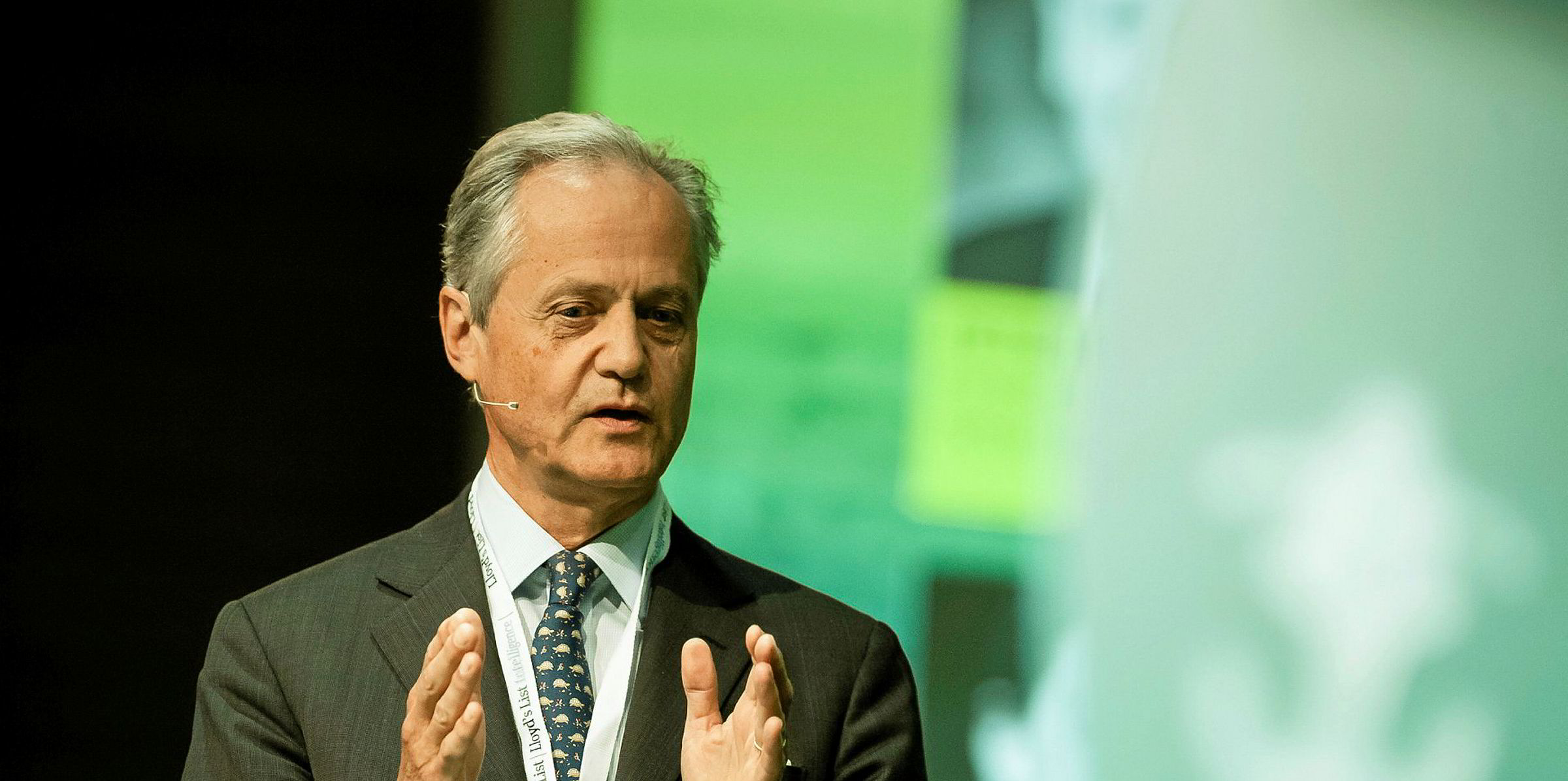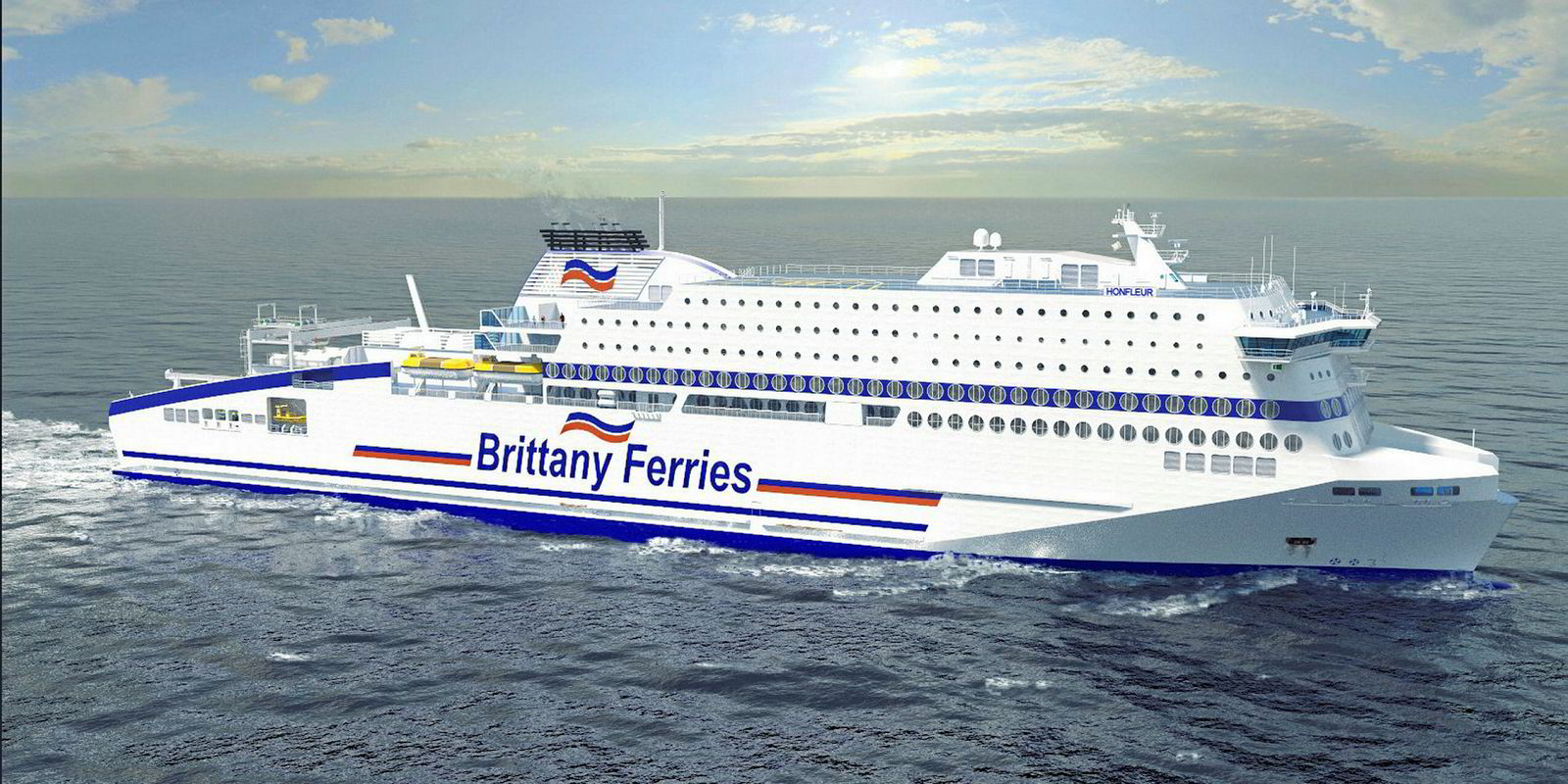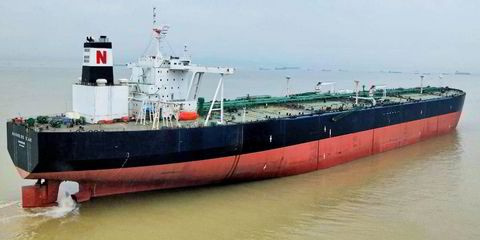The chief executive of Germany’s Flensburger Schiffbau-Gesellschaft (FSG) has hit back at “damaging” media reports that some ropax orders have been terminated, and others are in danger.
Alex Gregg-Smith, who was parachuted in earlier this year to resolve serious delivery delays, insists talks relating to high-value ferries are ongoing with customers.
“People are making statements that are unqualified and in quite a few instances incorrect,” he told TradeWinds.
Over the past two weeks, German media reports have suggested that the yard did not have the resources to complete future orders, which are in danger of being moved elsewhere.
Speculation especially has surrounded a second ropax for Irish Ferries costing €165.2m ($184.4m) and an eighth ro-ro for yard shareholder Siem Group.
Gregg-Smith, who was in charge of FSG for six months in 2016 and is also vice president of technical at Siem Shipping, said talks are continuing with Irish Ferries. The Dublin-based owner received an earlier ropax, the 1,885-passenger WB Yeats, in December 2018 — some six months late.
'Absolute nonsense'
“It isn’t a question of whether we are going to proceed [with the second ship],” Gregg-Smith said. “We have every intention of building the vessel.”
He said a rumour circulating that it had been cancelled was “absolute nonsense”.
Gregg-Smith added that inaccurate reports of cancellations at FSG were having a “knock-on effect with our suppliers, with the financial institutions, with clients about refund guarantees and with our own staff”.
The next Siem ro-ro — Hull No 781 — is already on the slipway, although production has been delayed so FSG can accelerate outfitting of a ropax for Brittany Ferries, the 1,690-passenger, LNG-fuelled Honfleur.
That vessel was scheduled for delivery in May but is running six months late and is now pencilled in for delivery this December.
Brittany Ferries said in a recent statement that it was finalising the one-year charter of an additional ship, in part to cover potential delays to the Honfleur ahead of the operator’s busy 2020 summer season.
Ongoing delays at FSG stem in particular from the late delivery of the WB Yeats, which inflicted substantial losses on the yard.
It has also caused concern over an order by the Tasmanian government’s TT-Line for two large, fast ropaxes.
TT-Line’s contract, signed last year, is for two 48,000-gt ropax ferries. The vessels, each costing €219m, are scheduled for delivery in 2021.

After Australian news reports recently suggested that the orders will likely be hit by protracted delays or may even be cancelled, Tasmania’s minister for infrastructure Jeremy Rockliff stepped in to say no money will be paid to FSG until there are concrete assurances the yard can perform the contract and refund guarantees can be secured.
Rockliff added that dialogue is continuing with two other shortlisted yards in case FSG cannot proceed.
Plans still on track
But Gregg-Smith said the intention is to press ahead with the order. Ongoing talks relate to providing satisfactory financing and the build schedule, he added.
His comments to TradeWinds are backed up by a recent official statement from TT-Line.
“We continue to have solid contracts in place with FSG to build the new Spirit of Tasmania [vessels], and the detailed ship design work is progressing as planned," TT-Line said.
“In the event of any delay, the current Spirit of Tasmania vessels will be emissions compliant from 2020 and can continue to operate past 2021.”

Well-placed European ferry industry observers said operators with orders at FSG will probably stick with the yard unless a worst-case scenario develops.
Experienced ropax builders, both in Europe and Asia, have relatively full orderbooks and the only alternatives would be to accept a later delivery date, pay a higher price for an earlier slot, or go with an untried yard.
“It really has reached the stage where you have to pay a lot more to get an earlier delivery slot,” one veteran Scandinavian ferry insider said.
Net loss in 2018
Siem Industries’ annual report in June said FSG sustained a net loss of €111m ($126m) in 2018 on revenues of €213m.
It blamed management issues, a lack of performance by subcontractors and an absence of building finance.
FSG had been controlled by Siem Europe since September 2014, when it helped put together a rescue package for the year after private equity investors pulled out.
“FSG had a major, negative impact on our results for the year [2018] and was a distraction for our management,” Siem Industries’ chairman Kristian Siem said.
However, earlier this year, it was announced that financial investor Lars Windhorst’s Sapinda Holding had agreed to acquire 76% of the shares in FSG, creating “new options” regarding finance and building vessels, Gregg-Smith said.
Looking ahead, he added: “We need to be sure when we start the second of the Irish Ferries’ ships that all our ducks are in a row, so we have the engineering completed for that vessel.”
Since taking charge, the focus has been on completing engineering for current vessels in the orderbook — design, and plan and class approvals “to make sure what we are actually producing is correct”.
Gregg-Smith said FSG had to concentrate on its production schedule and ensuring its turnkey installation suppliers are working efficiently.
Plenty of enquiries are still being received, but he is unable to comment on existing orders because they relate to information-sensitive stock-listed or state-owned companies.







